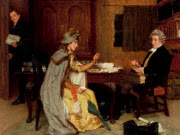Alastair McClure (University of Hong Kong) has published "Archaic Sovereignty and Colonial Law: The reintroduction of corporal punishment in colonial India, 1864-1909," Modern Asian Studies 54:4 (2020), 1712-47. Here's the abstract:
The judicial and summary punishment of whipping—absent from the Indian Penal Code (IPC) of 1860—was passed into law through Act No. VI of 1864. This legislation, tacked on as an appendage to the IPC, invested the judge with wider discretionary powers to administer violence across Indian society. In this case what emerged was an evolving attempt to enlarge the colonial state’s capacity for quotidian violence, targeting certain bodies to reaffirm, manage, and police the social hierarchies upon which colonial sovereignty depended. In the context of a slow imperial movement away from the cast-iron distinctions that had been made between groups in the early nineteenth century—distinctions that had, among other things, supported a legally enforced system of slavery—new methods to mark the value of different bodies were created. The events of the 1850s, in particular the rebellion of 1857-1858, saw the re-emergence of the colonial idea that certain bodies could withstand violence, and that violence itself could be used to create economically productive colonial societies, in debates around penal law and punishment. This article will trace this history through formal legal restrictions and informal legal cultural practices in relation to corporal punishment in colonial India. Over the course of the period under study, this legislation introduced into law what one official termed ‘the category of the “whippable”’. Charting the changing shape of this legal category along lines of race, gender, caste, class, and age, the article will argue that a logic of exceptionality, channelled here through the application of judicial violence, attempted to structure and manage Indian society in complicated ways.
Further information is available here.
--Mitra Sharafi


